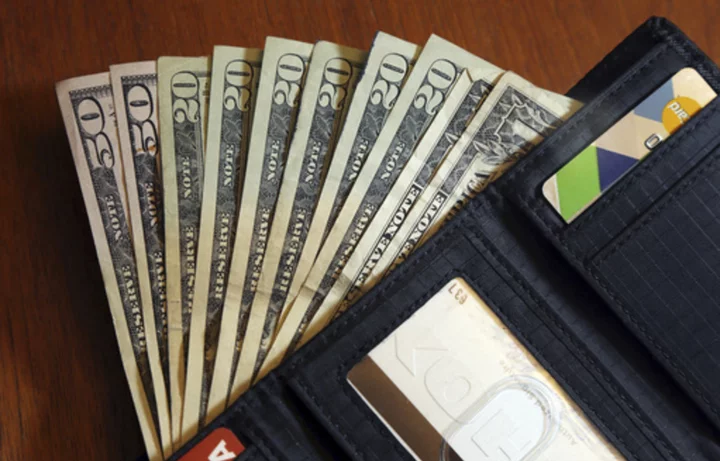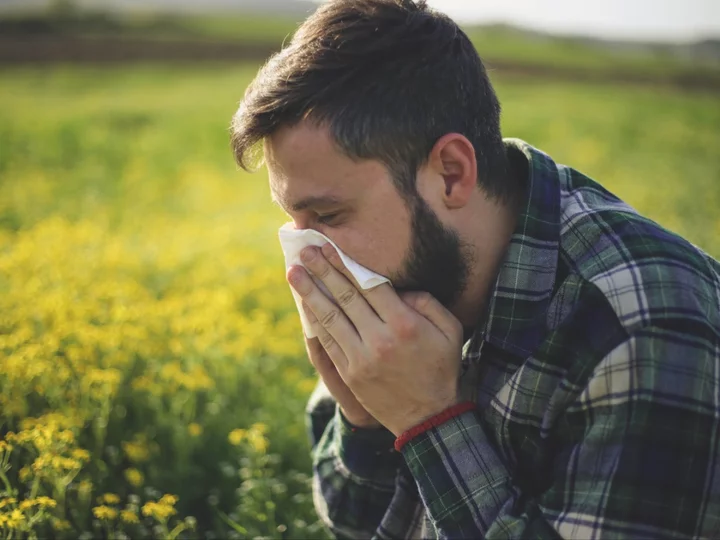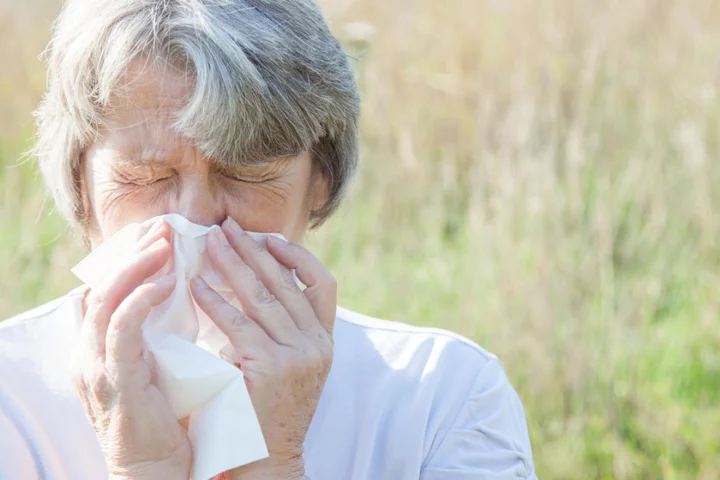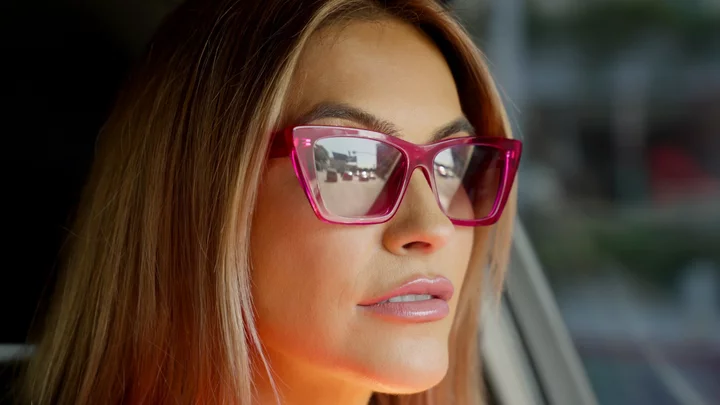
The Best Pet Workplaces Offer Bereavement and Pawternity Leave
Therapy puppies awaited petting in the lobby. A gospel choir sang from a second-story railing. Rocket Larry, a
2023-05-20 03:23

Pay Transparency Laws: What Small Businesses Need to Know
As more states adopt pay transparency laws, many small businesses will need to comply with legislation if they or the candidates they’re sourcing are located within these states
2023-05-20 02:52

NYC to Allow Outdoor Dining Only Part of the Year, Fewer Hours
The dining sheds that proliferated the streets of New York City during the pandemic will be allowed to
2023-05-20 02:47

Mother clarifies video about using fake tan on baby was a ‘joke’ after backlash
A mother has clarified that a video she made about giving her child a fake tan was a joke, after she faced a backlash over her footage. Kylen Suttner frequently posts videos on TikTok about her partner and their four-month-old child. In one clip, posted in March, she could be seen holding up her baby, while she appeared to have a serious look on her face. She also poked fun at the self-tanning product that she joked she used on her child, in the text over the video. “When everyone is telling me to stop self-tanning my baby but the loving tan employees have families to feed,” she wrote, referring to the popular self-tanning spray, Loving Tan. In the caption, Suttner added: “loving tan is our fave.” As the video quickly went viral, with more than 1m views, it sparked mixed responses. However, Suttner has now clarified that her video was actually a joke. During an interview with New York Post, she said that her baby’s tan skin is due to his jaundice, “a condition in which the skin, sclera (whites of the eyes) and mucous membranes turn yellow,” according to the Cleveland Clinic. “Everyone commented on his colour, so I decided to make a joke about it. I would never actually use self tanner on my baby,” she said. “I feel like most people understood it was a joke. But the few who didn’t were appalled that I would self tan my baby.” Although Suttner made this clarification about her video, the clip was still hit with criticism regarding the use of using self-tanners on babies. “Disgusting! So horrible!” one wrote, while another added; “I can’t tell if this is a joke?” @kylensuttner loving tan is our fav #tan #selftan #selftanning #selftanday #lovingtan #babyboy #newborn #newbornnap #momtime #naptime #newbornbaby #newbornbabyboy #momtok #postpartumbody #postpartumrecovery #postpartum #fourthtrimester #4thtrimester #newmom #newmomtok #postpartumjourney #csectiondelivery #csection #csectionmom #csectionrecovery ♬ original sound - Barney However, many TikTok users poked fun at the video and realised that it was just a joke. “You gotta keep the tan up, it’s a lifestyle Brian,” one quipped in the comments of the video, while another added: “So funny to me that people think you’re being [for real].” A third wrote: “I love this… I wish I had his skin colour.” The Independent has contacted Suttner for comment. According to the National Health Service (NHS), it is generally safe for women to use fake tan creams and lotions while pregnant. But, the site recommends avoiding spray tans, since “the effects of inhaling the spray are not known”. “The active ingredient in fake tan is dihydroxyacetone (DHA),” the medical site notes. “As the DHA isn’t thought to go beyond the outer layer of skin, it isn’t absorbed into the body and can’t harm your baby [during pregnancy].” The medical site also advises against using tanning pills, which are banned in the UK. “They contain large quantities of beta-carotene or canthaxanthin, which are commonly used as food colourings and can be toxic to an unborn baby,” NHS states. Read More Grandmother praised for refusing to babysit daughter’s newborn unless she’s paid $20 an hour Mother shares horrifying moment she found ticks living in her daughter’s ear Stay-at-home mother explains why she relies on full-time nanny Schoolboy almost dies from swallowing magnets for TikTok challenge Woman shares honest review of New York City apartment TikTok mom slammed after making 5-year-old son run in 104 degree heat
2023-05-20 01:58

Why do we get hay fever and what are the symptoms?
A runny nose, watery eyes, sneezing, coughing – whatever your hay fever symptoms, it’s no surprise if you’ve had a flare-up recently. During spring, both tree and grass pollen is released into the air. If you’re allergic to the proteins they contain, your nose, eyes, throat and sinuses can become swollen, irritated and inflamed. “Many people are suffering from hay fever just now because the pollen count is high, thanks in part to climate change,” says Dr Nisa Aslam, GP from Typharm’s Skin Life Sciences Foundation. “Plus the pollen season is getting longer.” The immune function plays an important role in an allergic reactions, she explains. “People who suffer from hay fever often have a family history of not just hay fever, but also skin conditions such as eczema or psoriasis, which can often be borne out of problems with the immune system.” The weather can also be a contributing factor in how badly you’re affected. “Some hay fever sufferers may be experiencing a sudden spike in their symptoms a bit earlier than usual, this may be due to the recent prolonged wet and windy weather,” says Claire Nevinson, superintendent pharmacist at Boots. “On a daily basis, rainfall tends to decrease pollen, but over a period of months, intermittent wet days tend to produce a more severe hay fever season overall.” Conditions could be about to get even worse. A recent study by the University of Worcester, published in the Science of The Total Environment journal, warned that it could be one of the worst seasons for birch pollen on record. The severity is due to two things. “Firstly, higher than average temperatures last June, when the pollen is produced, allowed greater potential for high pollen levels,” says Dr Beverley Adams-Groom, senior pollen forecaster at the university. “Secondly, birch trees have a biennial pattern of pollen production, one mild year and one severe year, and this year was already expected to be a high year.” So what can you do if your hay fever is much worse than usual at the moment? The first step is to avoid exposure to the pollen that affects you the most. “Allergens responsible for hay fever include grass pollens and tree pollens [spring and summer], weed pollens and fungal mould spores,” says Dr Aslam. “Watch the daily pollen forecasts. Don’t go outside when the pollen count is high and keep all windows shut.” Preventive medicines can help to reduce symptoms if you know in advance when you’re going to be exposed to pollen. “This can be a steroid nasal spray one to two weeks before symptoms start,” says Dr Aslam. Alternatively, natural nasal sprays “can help to prevent the symptoms of hayfever and other types of allergic rhinitis by forming a protective film in our inner nose, stopping allergens that we breathe in from trying to enter our respiratory system”, she says. Similarly, ointments like Vaseline can act as a pollen trap. “Apply a barrier balm of petroleum jelly around your nose to trap the pollen and help relieve dry and uncomfortable skin from repetitive nose blowing,” Ms Nevinson says. “Shower and change your clothes after you have been outside to wash pollen off and wear wraparound sunglasses to stop pollen getting into your eyes.” Read More Seasonal allergies tips and tricks as pollen count rises What is the link between pollen and eye infections? Hay fever may be mistaken for Covid, warns expert Why do heatwaves in the UK feel hotter than abroad? The startling and grim discoveries unearthed by the climate crisis Earth’s CO2 hits highest recorded level in human history
2023-05-20 01:49

Why is my hay fever so bad at the moment?
A runny nose, watery eyes, sneezing, coughing – whatever your hay fever symptoms, it’s no surprise if you’ve had a flare-up recently. During spring, both tree and grass pollen is released into the air. If you’re allergic to the proteins they contain, your nose, eyes, throat and sinuses can become swollen, irritated and inflamed. “Many people are suffering from hay fever just now because the pollen count is high, thanks in part to climate change,” says Dr Nisa Aslam, GP from Typharm’s Skin Life Sciences Foundation. “Plus the pollen season is getting longer.” The immune function plays an important role in an allergic reactions, she explains. “People who suffer from hay fever often have a family history of not just hay fever, but also skin conditions such as eczema or psoriasis, which can often be borne out of problems with the immune system.” The weather can also be a contributing factor in how badly you’re affected. “Some hay fever sufferers may be experiencing a sudden spike in their symptoms a bit earlier than usual, this may be due to the recent prolonged wet and windy weather,” says Claire Nevinson, superintendent pharmacist at Boots. “On a daily basis, rainfall tends to decrease pollen, but over a period of months, intermittent wet days tend to produce a more severe hay fever season overall.” Conditions could be about to get even worse. A recent study by the University of Worcester, published in the Science of The Total Environment journal, warned that it could be one of the worst seasons for birch pollen on record. The severity is due to two things. “Firstly, higher than average temperatures last June, when the pollen is produced, allowed greater potential for high pollen levels,” says Dr Beverley Adams-Groom, senior pollen forecaster at the university. “Secondly, birch trees have a biennial pattern of pollen production, one mild year and one severe year, and this year was already expected to be a high year.” So what can you do if your hay fever is much worse than usual at the moment? The first step is to avoid exposure to the pollen that affects you the most. “Allergens responsible for hay fever include grass pollens and tree pollens [spring and summer], weed pollens and fungal mould spores,” says Dr Aslam. “Watch the daily pollen forecasts. Don’t go outside when the pollen count is high and keep all windows shut.” Preventive medicines can help to reduce symptoms if you know in advance when you’re going to be exposed to pollen. “This can be a steroid nasal spray one to two weeks before symptoms start,” says Dr Aslam. Alternatively, natural nasal sprays “can help to prevent the symptoms of hayfever and other types of allergic rhinitis by forming a protective film in our inner nose, stopping allergens that we breathe in from trying to enter our respiratory system”, she says. Similarly, ointments like Vaseline can act as a pollen trap. “Apply a barrier balm of petroleum jelly around your nose to trap the pollen and help relieve dry and uncomfortable skin from repetitive nose blowing,” Ms Nevinson says. “Shower and change your clothes after you have been outside to wash pollen off and wear wraparound sunglasses to stop pollen getting into your eyes.” Read More Seasonal allergies tips and tricks as pollen count rises What is the link between pollen and eye infections? Hay fever may be mistaken for Covid, warns expert Why do heatwaves in the UK feel hotter than abroad? The startling and grim discoveries unearthed by the climate crisis Earth’s CO2 hits highest recorded level in human history
2023-05-20 00:16

Millions ditched cars for bikes during the pandemic. These cities want the habit to stick
During the worst of the pandemic, outdoor recreation surged as people took up pursuits to escape isolation
2023-05-19 23:48

What to Stream This Weekend
The content pile is vast, and you've got the whole weekend to decide how you
2023-05-19 23:15

Luxury Resort on Dubai’s Palm Islands Close to Selling For $280 Million
Anantara The Palm Dubai, a luxurious resort on one of the city’s famous artificial tree-shaped islands, is close
2023-05-19 21:58

IFF Weighs Sale of $1 Billion Lucas Meyer Cosmetics Unit
International Flavors & Fragrances Inc. is weighing a sale of a unit making ingredients for the cosmetics and
2023-05-19 21:29

Target recalls nearly 5 million Threshold candles after severe burns, lacerations reported
Target is recalling almost 5 million candles over laceration and burn hazards, according to a Thursday notice from the U.S. Consumer Product Safety Commission
2023-05-19 21:26

Americans Check Their Phones an Alarming Number of Times Per Day
It shouldn't be a surprise that many of us are spending too much time looking
2023-05-19 20:46
